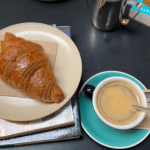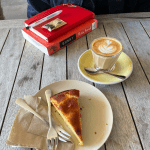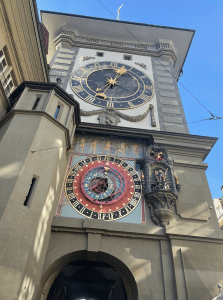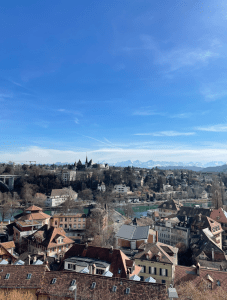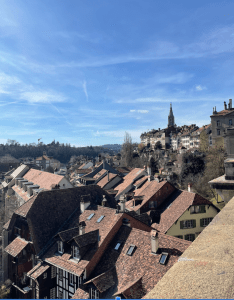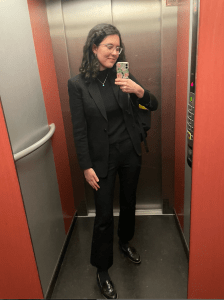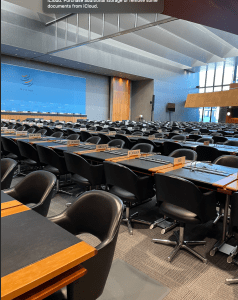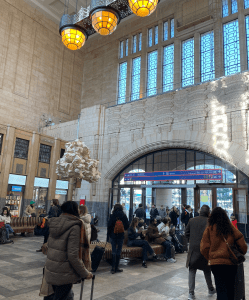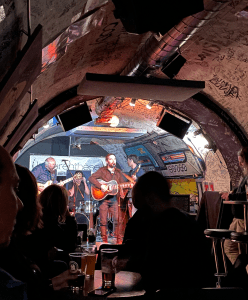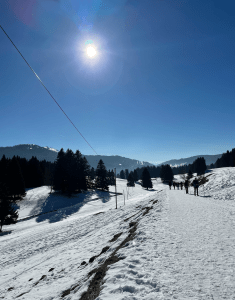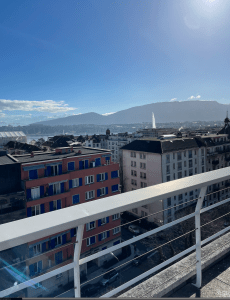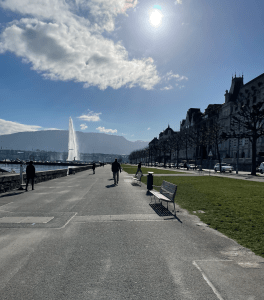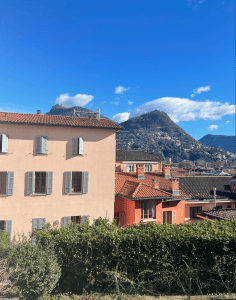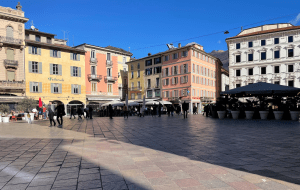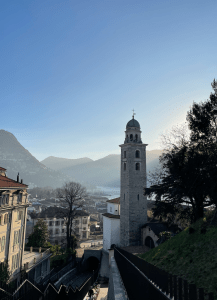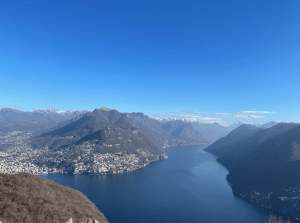I got sick again, so I apologize for the delayed post. I’d like to take this as an opportunity to remind future travelers: take all your favorite meds abroad because you never know.
Notwithstanding my current predicament, it’s been a lovely past week. Last Monday, all the students and our homestay families came together for a Swiss dinner at the Chateau de Nyon cave. As our appetizer, the servers placed huge boards of cured meats and bread on our tables. Next came the potatoes in their quilted bag, which keeps them warm for our incoming meal. Finally, the raclette plates were passed around. Raclette is a traditional meal of soft-boiled potatoes with rich melted cheese. In a restaurant, the servers dish out the melted cheese onto your plate in rotations around the room. Typically, you squish down your potatoes/fermented vegetables and scoop the cheese on top so you get a delicious savory bite of cheese, starch, and juicy pickled flavor all at once. It’s incredible, but a very heavy meal. That’s why you eat fermented vegetables or drink wine to aid digestion–at least, that’s the traditional advice. For those who do not drink, hot tea is acceptable, but never water! Cold things are believed to slow down digestion and make the cheese clump in your stomach.
Many Swiss people I have met tell me that Switzerland was an impoverished country until recently. Therefore, many of their iconic dishes are peasant foods or creative ways to deal with farm scraps. As the legend of Switzerland’s wealth goes, the Protestants in the 1500s banned all jewelry but exempted watches. Magnificent watches became the hallmark of Switzerland because it was one of the only ways people could display their wealth. Over a few hundred years, the technical precision of watchmaking converted to other industries like machinery and pharmaceuticals. Though I’m sure this is simplified, I would have to agree that the Swiss are excellent with details. The architecture, the art, the transportation systems, and the clocks are so impressive. It sounds silly, but what really made my mouth drop the other day was seeing a man dragging a giant tube along the Geneva train platform to vacuum specks of debris—no wonder it’s spotless.
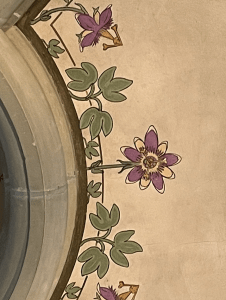
Painted details at the Church of St. Peter and St. Paul
From last week’s classes, the highlights were a guest lecture from one of the founders of Money Leman and our visit to the European Free Trade Association (EFTA). Money Leman is a complementary currency offered as crypto and paper money that is exchanged among a community of sustainable businesses in the Geneva Lake area. The goal is to keep business and money in the local economy as much as possible. I also found the EFTA extremely interesting as it’s an alternative trade organization to the EU between Switzerland, Iceland, Liechtenstein, and Norway. These countries have industries, like fishing or farming, that they think will perform better with more autonomy and negotiation power than the EU provides.
We had some free mornings before classes to explore my friend’s town of Versoix for a few hours. We visited the library, went to a thrift store, and hung out in a cafe back In Nyon. I feel lucky to have found someone in my program who enjoys the same relaxed activities. However, I still make it a priority to explore independently. On Saturday, I took the train two hours each way through incredible countryside views to Bern, the federal capital of Switzerland. Since I was by myself, I think I was able to allow my curious mind to wander more and notice details about the city. All I did was walk around, rest, and try to breathe in the city on what happened to be a gloriously sunny day. I fell in love with the quaintness of Bern’s old town, the light-hearted atmosphere, and the amount of green space available along the river.
Writing this, I’m feeling some déjà vu because, in every French class, I have to give a short presentation on where I have visited or a class topic I have found interesting. It has helped me pick up new words like émerveillement which means wonder.
Je regarde toujours avec émerveillement. I always look with wonder.
This is how I described going to the Geneva Botanical Gardens in class. It reminds me of growing up in Chicago and visiting the Chicago Botanic Garden or the Lincoln Park Conservatory. Exploring the various greenhouses with my friend this past Sunday made me feel like a little kid again. With acres to explore, I am excited to return when the spring flowers start to bloom.
Next week we fly to Athens, Greece for two weeks to study the financial crisis.
Until later!
Finances (Tuesday 2/14- Wednesday 2/22):
– 80 CHF at Migros (covered by SIT food stipend)
– 24 CHF Cafe drinks/desserts
– 19 CHF Friday night spending (La Taproom in Geneva, Burger King snacks, and La Parenthèse in Nyon)
= 123 CHF/131 USD (80 of which was covered by SIT)
* calculations are not exact but close estimates

